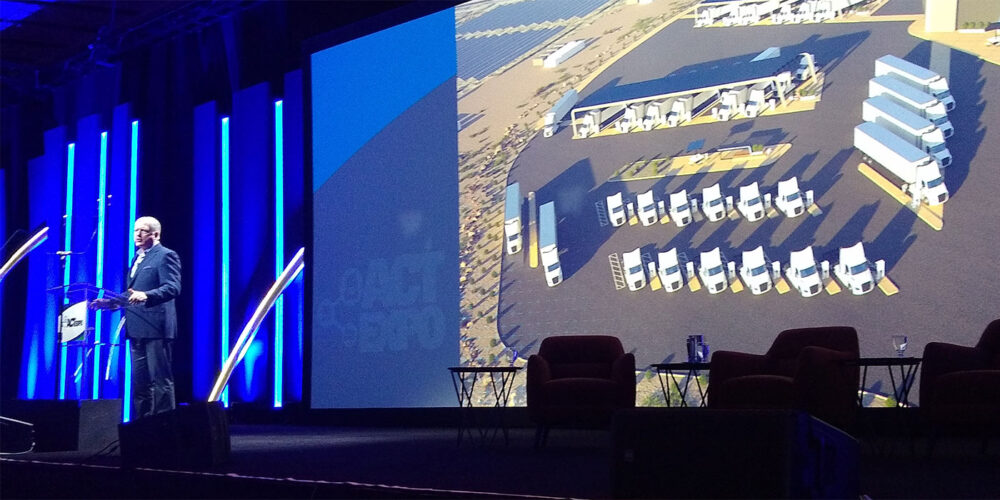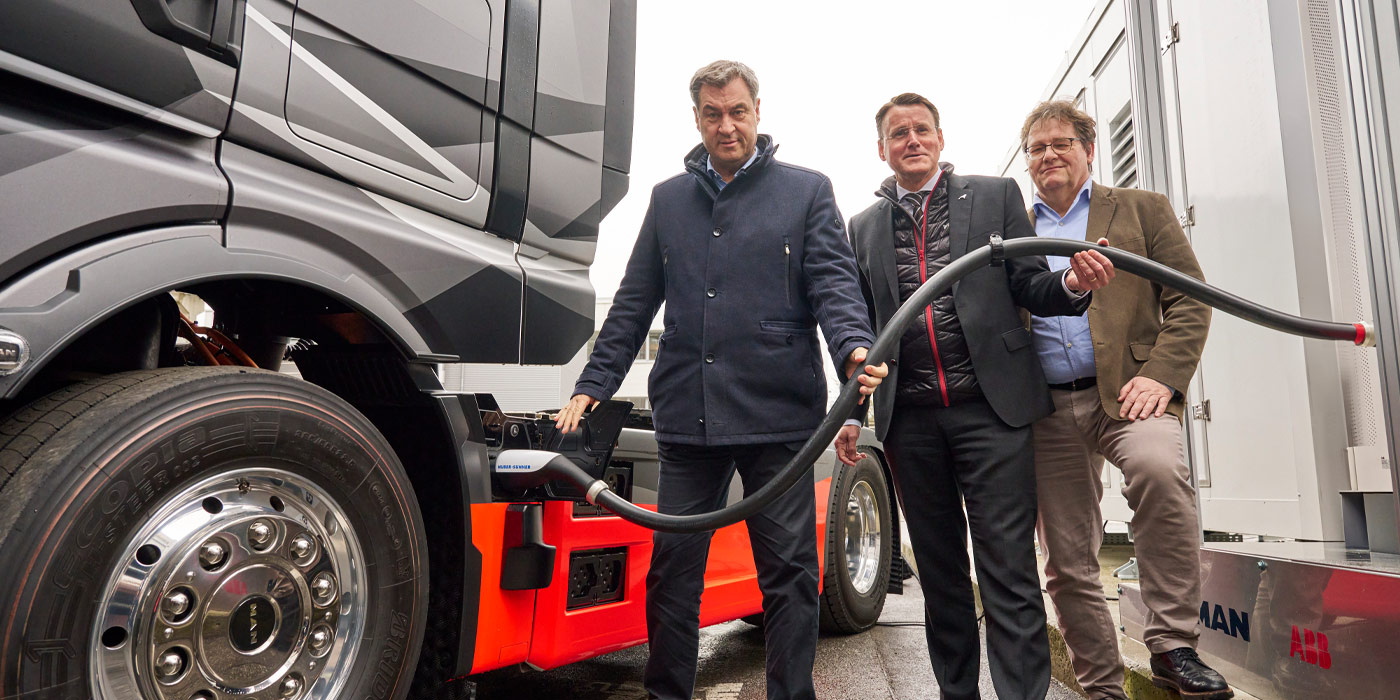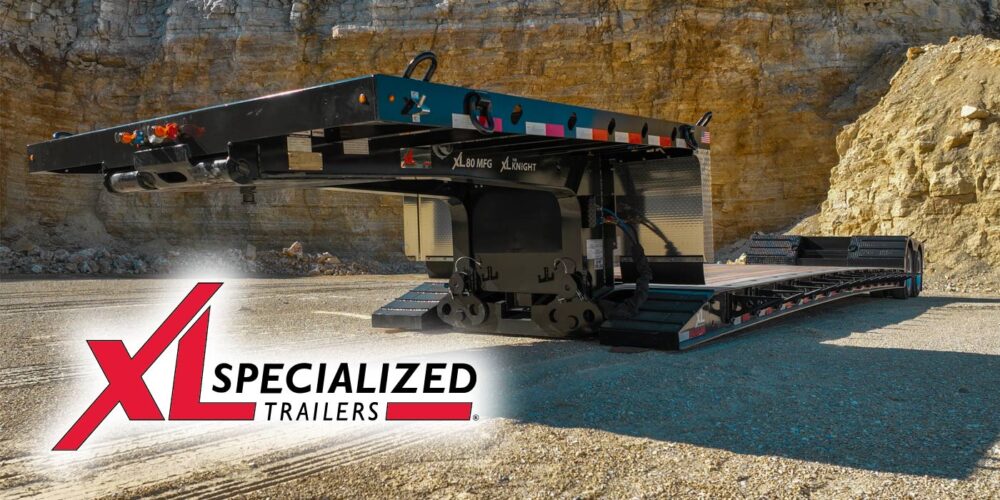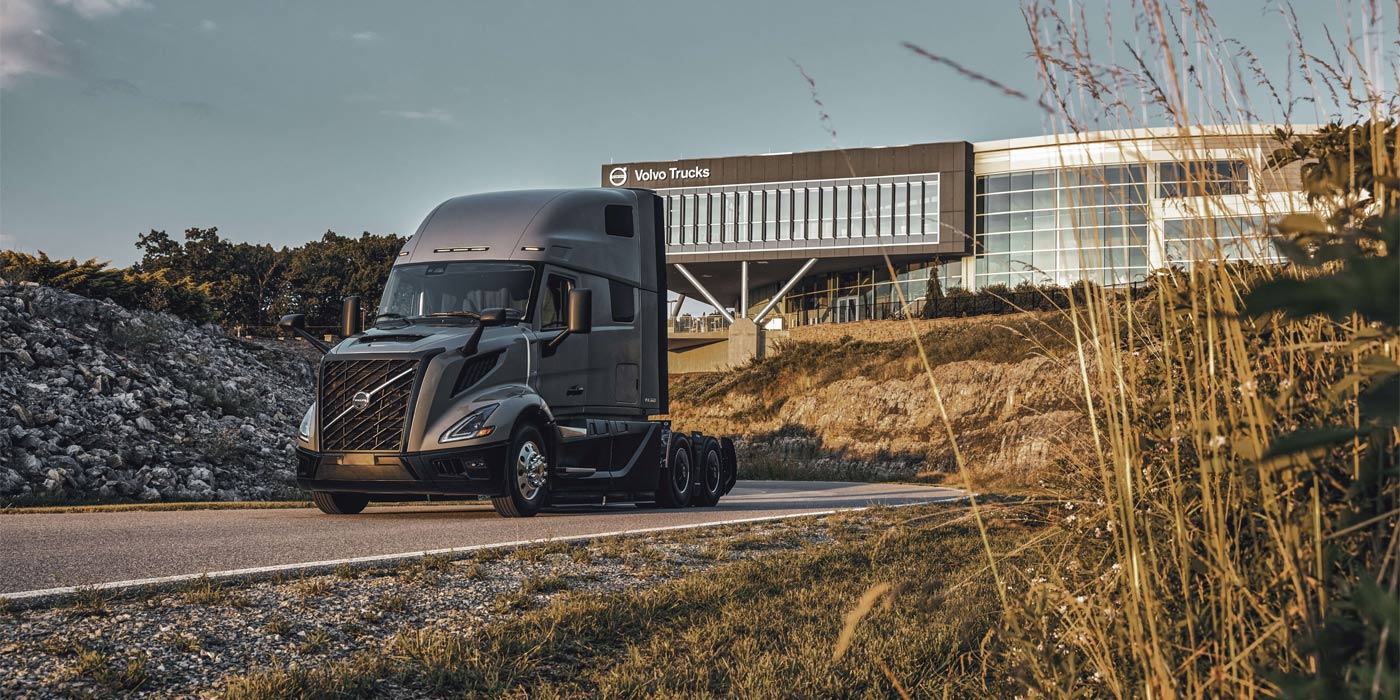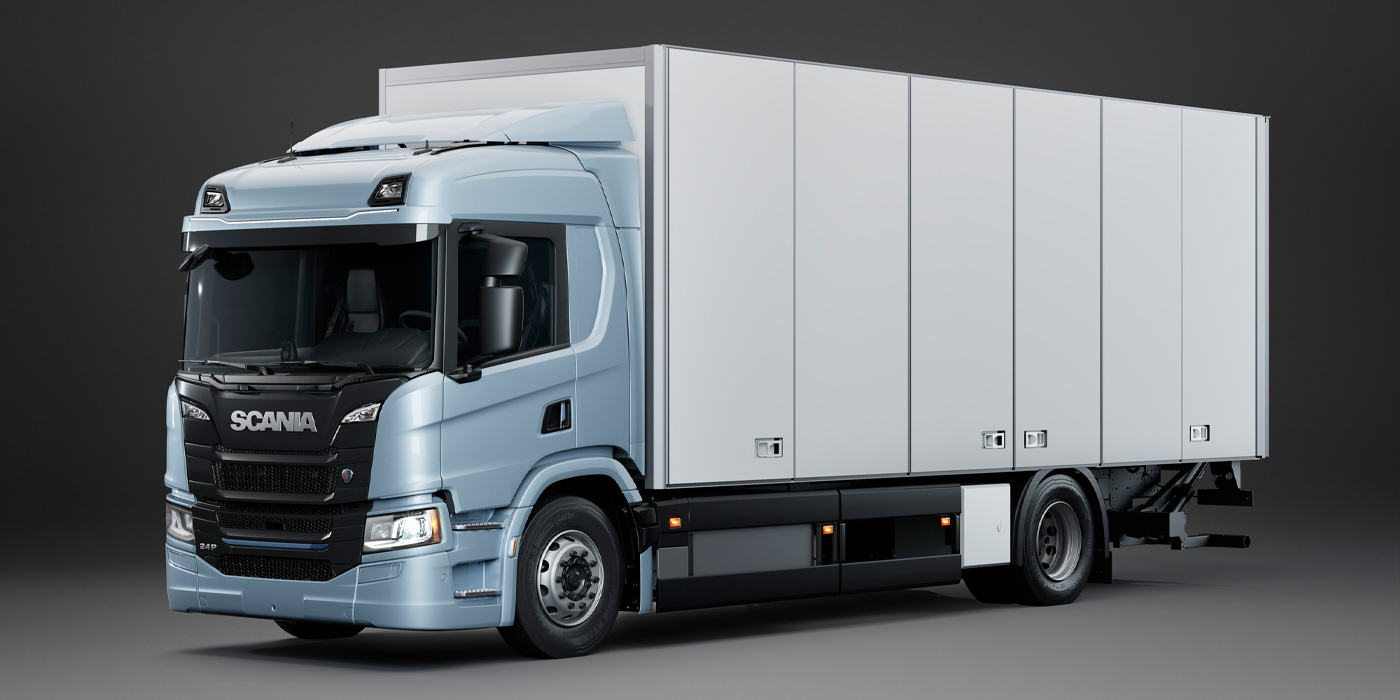The huge ballroom that hosted the ACT Expo 2023 kick-off keynote speakers was packed with standing room only in the back several rows deep. Erik Neandross, chief executive officer, Gladstein, Neandross & Associates (owner of ACT Expo) took to the stage to welcome the more than 12,000 registered attendees, including 2,500 fleets, buyers and end-user customers. “Big” is the word of this year’s show already–big attendance, big investments being made across the industry from all segments including manufacturers, suppliers and fleets, and … big challenges on the zero-emissions road ahead.
Here’s what we heard at ACT Expo 2023’s kickoff.
Regulator remarks
California made huge headlines of its own on the eve of ACT Expo with its Advanced Clean Fleets (ACF) rule that, in part, lays out the regulatory framework to push fleets to full zero-emissions vehicles in certain applications, namely: Last mile delivery and yard trucks must transition by 2035, work trucks and day cab tractors must be zero-emission by 2039, and sleeper cab tractors and specialty vehicles must be zero-emission by 2042.
Wayne Nastri, executive officer, South Coast AQMD–the regulatory agency responsible for improving air quality for large areas of Los Angeles, Orange, Riverside and San Bernardino counties, including the Coachella Valley–took to the stage to put zero-emissions initiatives in perspective and provided context for efforts going forward. He explained that the best way to achieve infrastructure for zero-emissions vehicles, including hydrogen, is to work alongside government agencies such as the Department of Energy, Department of Transportation and the Environmental Protection Agency. He said the South Coast AQMD has leveraged public and private partnerships to award over $140 million in infrastructure investments since 2022.
Here are his full comments:
Daimler Truck N.A. Pres., CEO John O’Leary talks infrastructure challenges, working toward solutions together
Electric vehicles are here, but the infrastructure to support them is not–that was the crux of Daimler Truck North America President and CEO John O’Leary’s keynote. Despite efforts to rapidly grow medium- and heavy-duty electric truck infrastructure from DTNA, other truck OEMs and various start-ups, O’Leary said charging infrastructure isn’t growing quickly enough to keep up with demand and regulatory standards for zero-emissions trucks.
“What we’re finding, or what our customers can’t find, is the charging infrastructure to run these products,” O’Leary said, speaking on the adoption of battery electric commercial vehicles. “Current lead times for DC charging depot projects are, in general, running over two years. Our customers–the nation’s fleets–can’t achieve the desired reduction in emissions nor can they realize the usefulness of these products if they can’t charge where those vehicles are domiciled when it comes to public charging for medium- and heavy-duty electric vehicles.
“Our company’s investments alone won’t be enough to hit the targets we’ve all set for this industry,” he added. “At Daimler Truck, we’ve calculated the dollar investment in charging infrastructure required to meet nationwide 2032 climate targets, and it will take roughly $52 billion just for medium- and heavy-duty vehicles. That is the commitment required to meet the need for increased energy generation transmission and distribution, but it does not include the cost of real estate to cite those charger installations.”
O’Leary said that teamwork between the public and private sectors will be key to successfully moving fleets closer to zero-emissions technologies, but noted that diesel will remain a staple resource for the transportation industry for years to come as he called for a more concentrated, collaborative effort to face down today’s challenges.
“Diesel has dominated our industry and it has dominated our lives, driving our economies and humankind forward in immeasurably positive ways… We cannot operate under the delusion that zero-emission technology for this industry is ready to completely supplant diesel today, or that it will be ready to do it next year or even five years from now,” O’Leary said. “We cannot deploy a nationwide charging network by the end of this decade one multi-year site build at a time. We cannot run head-first putting the companies running the nation’s fleet out of business.”
Watch the videos above to hear from O’Leary and Nastri about the innovations that will be necessary in the trucking industry to ensure the U.S. power grid is robust enough and the nation’s ZEV-related infrastructure is resilient enough in the coming years to support the transition to zero emissions.

